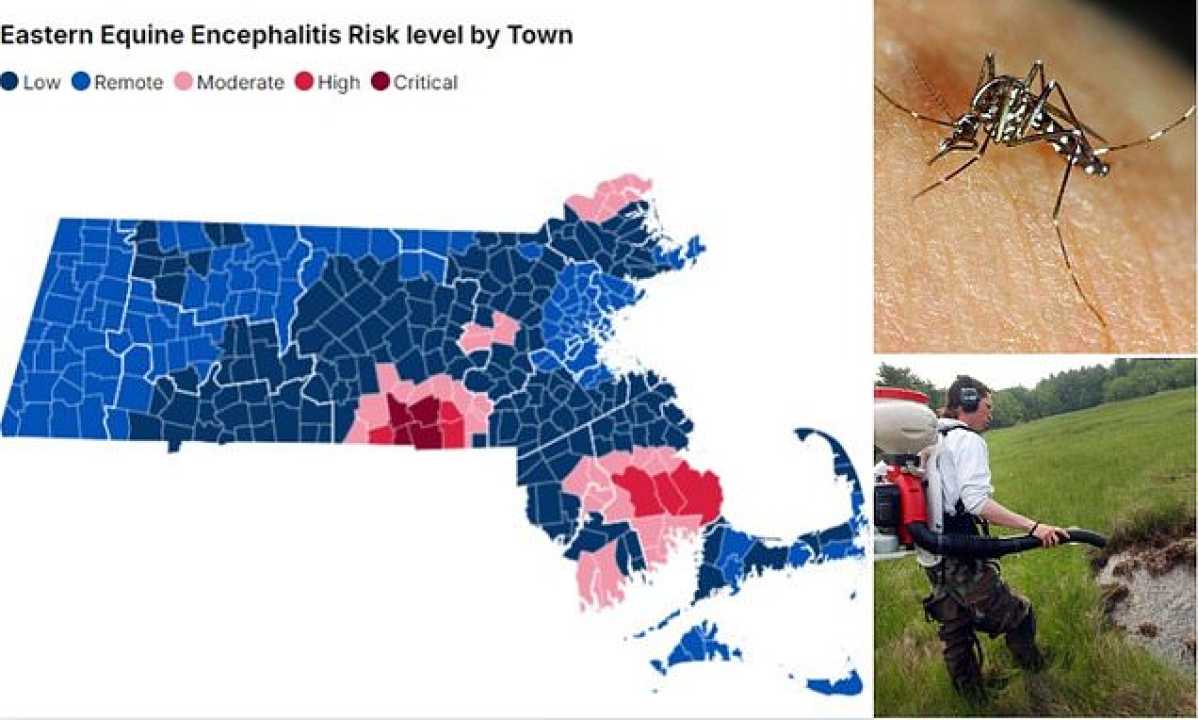Health
Massachusetts Faces Eastern Equine Encephalitis Health Crisis

Communities in Massachusetts are currently on high alert due to the confirmation of the first human case of Eastern Equine Encephalitis (EEE) in the state in four years. Public health officials have identified ten communities as critical or high risk for this potentially life-threatening viral disease, which is transmitted through mosquito bites.
Authorities are actively working to control the spread of EEE by spraying mosquito pesticides from both planes and trucks in the high-risk areas. Several towns have implemented nighttime park closures and voluntary curfews to reduce exposure to mosquitoes during dusk to dawn, when these insects are most active.
The recent patient, a man in his 80s, was exposed to the virus in Worcester, as reported by the Massachusetts Department of Public Health. EEE infection leads to inflammation of the brain and can result in severe neurological consequences.
According to the Centers for Disease Control and Prevention (CDC), approximately 30% of individuals infected with EEE may die, with survivors often experiencing long-term neurological problems. While EEE cases are infrequent, they peak during the summer months and may continue into early fall.
In the United States, cases of EEE are most commonly reported in Eastern or Gulf Coast states. In 2019, for instance, the U.S. recorded 38 cases, marking the highest annual count in over a decade. The CDC emphasizes that humans are considered ‘dead end hosts’ for the virus, meaning it does not spread from person to person.
Currently, there is no specific treatment for EEE, and preventive measures focus on avoiding mosquito bites. Public health officials recommend using insect repellent and taking precautions during peak mosquito activity times.
Symptoms of EEE include fever, headache, and in severe cases, neurological issues that may prove life-threatening. As Massachusetts faces this health crisis, residents are reminded to be vigilant and take necessary actions to protect themselves.












